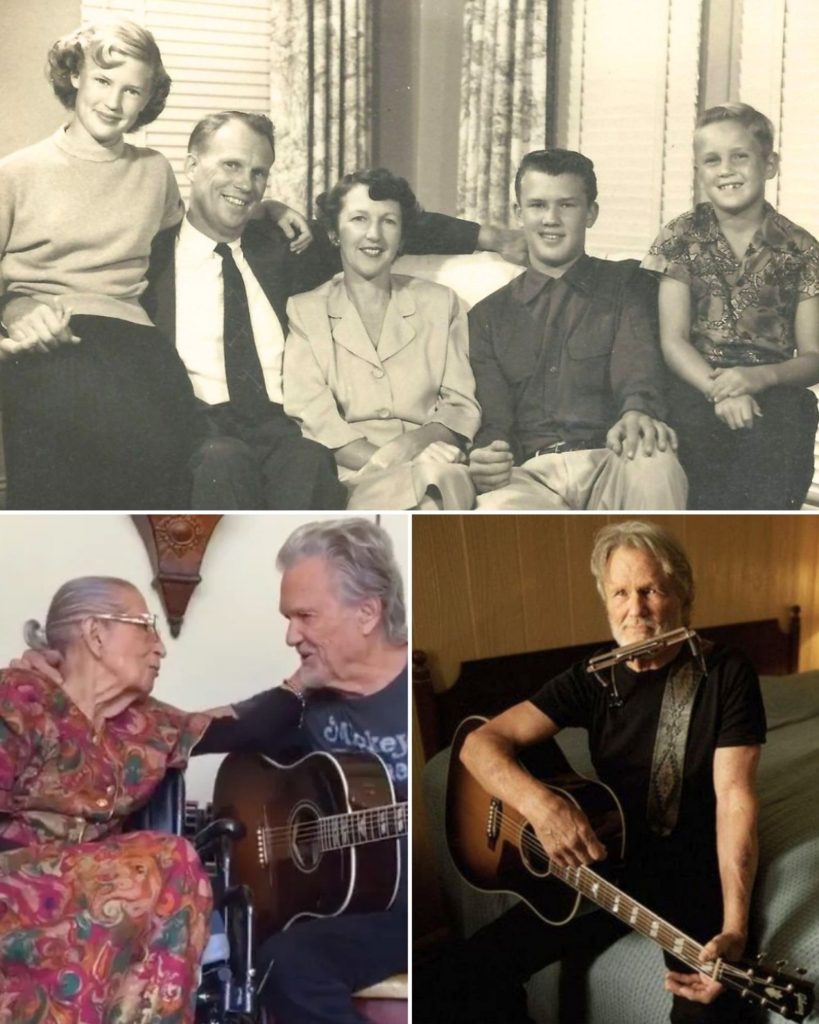
Kris Kristofferson walked away from a life many would envy — the son of a decorated soldier, a Rhodes Scholar, a secure path laid out by family — and he did it for a single, stubborn thing: the promise of truth in a song. That choice cost him comfort, strained family ties, and left him to build a life from scars. From those scars came songs the country music world still plays when people need feeling more than platitudes.
He did not trade one safe life for another. He gave up the map others had drawn and let his own hunger for words and music chart the course. That hunger produced lines that avoided polish and settled for honesty. One phrase, offered as his own summation, became a kind of mission statement for his life and work.
“I walked away from everything I was raised to be, just to chase a song.” — Kris Kristofferson, songwriter
The story behind a single song shows why his risk mattered. “Help Me Make It Through the Night” began as a blunt confession, inspired in part by something he heard from another giant of popular music. Kristofferson’s words were plain, almost raw, and when a soulful singer named Sammi Smith brought them to the microphone, the song leapt out of country bars and into living rooms, diners and late-night thinking.
Its lines did not promise forever. They promised presence — a warm body, a soft hand, relief from the loneliness that so many feel. The plainness was the point. When people heard it, they recognized themselves.
“I don’t care what’s right or wrong, I won’t try to understand” — Kris Kristofferson, songwriter
Sammi Smith’s recording pushed the song into the mainstream. It topped country charts, earned a Grammy, and crossed over into unexpected audiences. But the awards only tell part of the tale. The deeper thing is how the record became a companion for people who felt their nights were too long: truck drivers out on the road, lovers awake and restless, older listeners who have carried years of small losses and understand the quiet plea the song makes.
Kristofferson’s life gave the songs their teeth. He grew up with heavy expectations; he walked away from safety and paid for it in broken family ties and loneliness. Yet that price bought him a voice that could cut straight through pretense. Critics and fans often point to a handful of tracks—“Help Me Make It Through the Night,” “Sunday Mornin’ Comin’ Down,” “Me and Bobby McGee”—that read like diary entries with universal hooks.
For older listeners, the meaning is immediate and simple: this music speaks the plain truth about aching and needing, about nights when comfort matters more than rules. Radio shows, jukeboxes, and kitchen turntables kept the songs alive across decades, and new singers continuing to cover the work have kept Kristofferson’s lines in circulation. The songs are short and direct enough to be memorized and private enough to be kept like small, secret reliquaries of feeling.
Behind the public story are the private costs. Friends and collaborators remember a man who was not looking for fame but for honesty. The songs were not crafted to sell; they were carved from regret and yearning. That authenticity helped them survive trends and fashions.
He lost much in pursuit of truth, and yet that loss produced songs that do what few songs can: they make listeners stop, feel their own small failures and comforts, and find a kind of rescue in plain language. Today the music still slips into quiet rooms and radio static, asking a single, blunt question of anyone who will listen, leaving us with the sense that sometimes — even now — all we need to get through is the simple presence of another and the admission that we